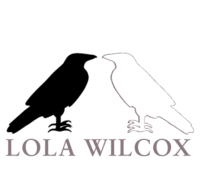Division 4 – Societal Change Consultants
Work in this division is defined as the instigation of deliberate and planned processes by which communities and broader social systems are helped to undergo constructive changes in pursuit of common causes and goals for the public good, the improvement of government or governance, and the reduction of oppression. Public good is considered to mean enhancement of basic human values, the natural environment and the quality of life. Constructive change involves assisting in the conversion of certain behavioral indicators from minus to plus. These include apathy to energy, racism to pluralism, win/lose to win/win, disenfranchisement to participation and depersonalization to dignity.
A change effort consists of data-gathering, diagnosis, planning, researching, implementing and evaluating multiple actions and interventions. Implementation often includes building coalitions and using political strategies and tactics to enable two or more groups or factions to discover improved ways to accomplish their purposes.
Broad Criteria for Work in this Division
These are expectations about what a new member should be working in or on – not that a consultant would meet all of these criteria at the time of application. A consultant meets the requirements of this division when she or he has the following proficiencies:
-
- Performs all professional acts ethically and competently.
- Recognizes and appropriately designs and facilitates processes that accommodate the unique cultural, race, gender, age, sexuality and class differences represented in the community and its constituencies.
- Knows the basic theories and technologies and is skilled in the processes of diagnosis, designing intervention strategies, facilitation and consultation.
- Is able to assume advocacy, coalition building, negotiation for balancing power and facilitation roles.
- Is an expert in at least one of the following and knowledgeable about the others: contracting for social development, conflict management and crisis intervention/prevention, building strategic alliances, third party facilitation, negotiation including collaborative bargaining and public communications.
- Uses theoretical and technological processes from a(n)
- Organization and community development,
- Community planning,
- Social action (disruptive non-violence as practiced by King, Ghandi, or others)
- Disruptive conflict (in the style of Alinsky)
- Confrontation negotiation
- Whole system future search and planning
- Collaborative bargaining
- Peacemaking
- Diffusion and adoption (e.g., through the mass media)
- Political/legislative action (public policy development).
- Demonstrates flexibility in helping a client choose an appropriate strategy. This may sometimes mean that the client will be referred to other consultants who have theory and technological orientation which are more appropriate for the client’s situation.

